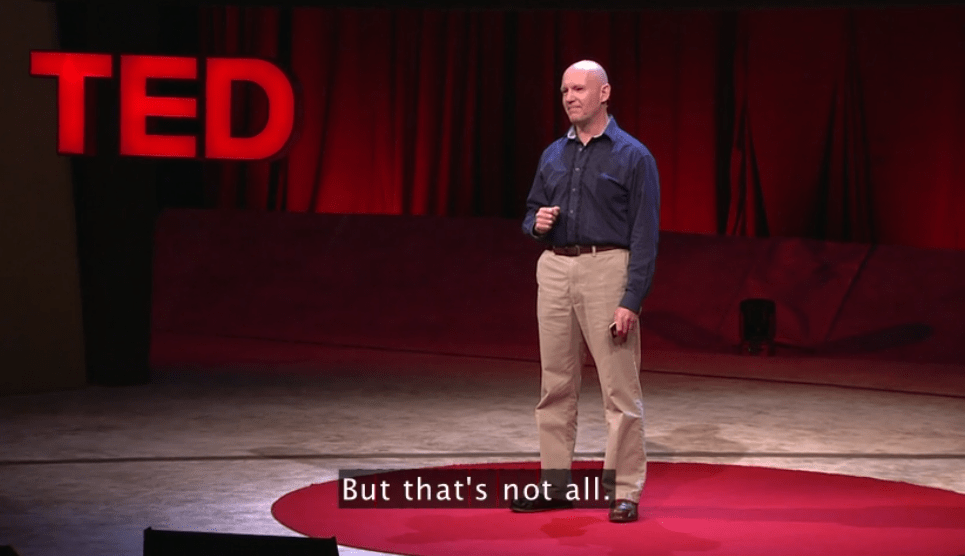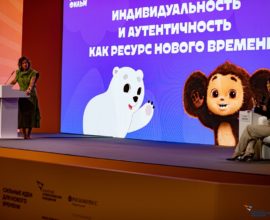Рабочая тетрадь TED
The link that you were waiting for -> https://englishmag.ru/ielts2021/
Заполните пропуски данными словами и проверьте свои ответы по тексту:
differences
distinguish
differencing
pattern recognition
intention
filters
attention
same
fall short
We use some pretty cool techniques to do this. One of them is ………(сrowd noises) So in a cocktail party like this, if I say, «David, Sara, pay attention» — some of you just sat up. We recognize patterns to …….. ..noise from signal,and especially our name. …………is another technique we use. If I left this pink noise on for more than a couple of minutes, (Pink noise) you would literally cease to hear it. We listen to………….; we discount sounds that remain the ………. .
And then there is a whole range of ………. These filters take us from all sound down to what we pay………. to. Most people are entirely unconscious of these filters. But they actually create our reality in a way, because they tell us what we’re paying attention to right now. I’ll give you one example of that. ………… is very important in sound, in listening. When I married my wife, I promised her I would listen to her every day as if for the first time. Now that’s something I ………….. of on a daily basis. (Laughter)But it’s a great intention to have in a relationship.

Prepared by Karina Darbinyan, Artem Pruidze and Vlad Tishchenko
5 Ways to Listen Better / 5 способов как лучше слушать (других) Julian Treasure
Vocabulary in context:
roughly [‘rʌflɪ] примерно; грубо
retain [rɪ’teɪn] удерживать; сохранять
extraction [ɪk’strækʃ(ə)n, ek-] извлечение; выбор
pattern recognition — распознавание образов
distinguish [dɪ’stɪŋgwɪʃ] различать
literally [‘lɪt(ə)r(ə)lɪ] буквально (letter — буква)
cease [siːs] прекращать
discount [‘dɪskaunt] скидка; не принимать в расчет
entirely [ɪn’taɪəlɪ, en-] полностью
unconscious [ʌn’kɔn(t)ʃəs] не осознающий; бессознательный
intention [ɪn’tenʃ(ə)n] намерение
fall short of sth. — терпеть неудачу; не достигать чего-то
be aware (of sth) — быть осведомленным (чем-то)

embedded [ɪm’bedɪd, em-] вставленный; встроенный
sonority [sə’nɔrətɪ] звучность, созвучие
premium on accurate listening — важность внимательного слушания
take refuge (in) — находить прибежище
tiny [‘taɪnɪ] очень маленький, крошечный
bubble [‘bʌbl] (мыльный) пузырь
headline [‘hedlaɪn] заголовок
trivial [‘trɪvɪəl] банальный, обычный; незначительный
choir [‘kwaɪə] церковный хор; хоровой ансамбль
lever [‘liːvə] рычаг
Listen and read the script
We are losing our listening. We spend roughly 60 percent of our communication time listening, but we’re not very good at it. We retain just 25 percent of what we hear. Now — not you, not this talk, but that is generally true.
(Laughter)
Let’s define listening as making meaning from sound. It’s a mental process, and it’s a process of extraction.
Мы теряем способность слушать. Общаясь, приблизительно 60% времени мы слушаем, но мы не очень хорошие слушатели. Мы помним (удерживаем) только 25% того, что слышим. Может быть, не вы, не на этом докладе, но вообще таково положение вещей. Давайте определим слушание как преобразование звуков в смысл. Это умственный процесс, это процесс извлечения.
00:23
We use some pretty cool techniques to do this. One of them is pattern recognition.(Crowd noises) So in a cocktail party like this, if I say, «David, Sara, pay attention» — some of you just sat up. We recognize patterns to distinguish noise from signal,and especially our name. Differencing is another technique we use. If I left this pink noise on for more than a couple of minutes, (Pink noise) you would literally cease to hear it. We listen to differences; we discount sounds that remain the same.
00:23
В нём мы используем довольно интересные приёмы. Один из них — распознавание образов. (Шум толпы) Если на подобной коктейльной вечеринке я скажу: «Дэвид, Сара, послушайте». некоторые из вас прислушаются. Мы распознаём образы, чтобы различить шум от сигнала, особенно своё имя. Дифференциация — другой приём, которым мы пользуемся. Если я оставлю этот розовый шум на две минуты, вы буквально перестанете его слышать. Мы слушаем отличия, мы не придаём значения звукам, которые не меняются.
00:53
And then there is a whole range of filters. These filters take us from all sound down to what we pay attention to. Most people are entirely unconscious of these filters. But they actually create our reality in a way, because they tell us what we’re paying attention to right now. I’ll give you one example of that. Intention is very important in sound, in listening. When I married my wife, I promised her I would listen to her every day as if for the first time. Now that’s something I fall short of on a daily basis.
(Laughter)
But it’s a great intention to have in a relationship.
00:52
И, наконец, у нас есть множество фильтров. Они отсеивают все звуки, кроме важных для нас [культура, язык, ценности, убеждения, позиция, ожидания, цели]. Большинство людей ничего не знают об этих фильтрах. Но они в какой-то мере создают нашу реальность, определяя для нас, на что мы в данный момент обращаем внимание. Приведу один пример: Цель (намерение) очень важна для звука, для слушания. Когда я женился, я обещал своей жене, что буду слушать её каждый день, как будто в первый раз. В этом я каждый день терплю неудачу. (Смех) Тем не менее это очень хорошая для отношений цель.
01:28
But that’s not all. Sound places us in space and in time. If you close your eyes right now in this room, you’re aware of the size of the room from the reverberation and the bouncing of the sound off the surfaces; you’re aware of how many people are around you, because of the micro-noises you’re receiving. And sound places us in time as well, because sound always has time embedded in it. In fact, I would suggest that our listening is the main way that we experience the flow of time from past to future. So, «Sonority is time and meaning» — a great quote.
01:28
Но это не всё. Звук ориентирует нас в пространстве и времени. Если вы сейчас в этом зале закроете глаза, вы будете иметь представление о размерах зала по реверберации и отражению звука от поверхностей. И вы будете знать, сколько вокруг людей, по слабым шумам, которые мы слышим. И звук также ориентирует нас во времени, потому что в звуке всегда заключено время. Собственно, я думаю, что наше слушание — это главный способ, с помощью которого мы чувствуем поток времени от прошлого к будущему. «В созвучии — время и смысл» — великолепное высказывание.
02:03
I said at the beginning, we’re losing our listening. Why did I say that? Well, there are a lot of reasons for this. First of all, we invented ways of recording — first writing, then audio recording and now video recording as well. The premium on accurate and careful listening has simply disappeared. Secondly, the world is now so noisy, (Noise) with this cacophony going on visually and auditorily, it’s just hard to listen; it’s tiring to listen. Many people take refuge in headphones, but they turn big, public spaces like this, shared soundscapes, into millions of tiny, little personal sound bubbles. In this scenario, nobody’s listening to anybody.
02:03
Как я уже сказал, мы теряем способность слушать. Почему я так считаю?Есть много причин. Во-первых, мы изобрели несколько способов записи:сначала письмо, потом звукозапись, а потом ещё и видеозапись. Важность внимательного слушания просто напросто пропала. Во-вторых, в мире сейчас столько шума, (Шум) с этой какофонией визуальной и слуховой, слушать просто трудно; это утомительно. Многие находят спасение в наушниках, но они превращают открытое общественное пространство, как это, общие звуковые пространства, в миллионы крошечных, персональных звуковых пузырей. И в этом случае, никто никого не слушает.
02:47
We’re becoming impatient. We don’t want oratory anymore; we want sound bites. And the art of conversation is being replaced — dangerously, I think — by personal broadcasting. I don’t know how much listening there is in this conversation, which is sadly very common, especially in the UK. We’re becoming desensitized. Our media have to scream at us with these kinds of headlines in order to get our attention. And that means it’s harder for us to pay attention to the quiet, the subtle, the understated.
02:47
Мы становимся нетерпеливы. Нам больше не нужна риторика, нам нужны звуковые фрагменты. Искусство общения вытесняется — и по-моему, это опасно — личным самовещанием. Я не знаю, как много слушания в таком разговоре, который, к сожалению, не редкость, особенно в Англии. Мы становимся невосприимчивыми. Средствам информации приходится кричать нам в лицо такими заголовками, чтобы привлечь внимание. А значит, и нам становится труднее обратить внимание на тихое, тонкое, невысказанное.
03:20
This is a serious problem that we’re losing our listening. This is not trivial, because listening is our access to understanding. Conscious listening always creates understanding, and only without conscious listening can these things happen. A world where we don’t listen to each other at all is a very scary place indeed. So I’d like to share with you five simple exercises, tools you can take away with you, to improve your own conscious listening. Would you like that?
03:20
То, что мы теряем способность слушать — серьезная проблема. Это нетривиально. Потому что слушание — наш ключ к пониманию. Осознанное слушание всегда приводит к пониманию. И только без осознанного слушания может происходить такое. Если мы совсем не будем слушать друг друга, мир станет ужасным местом. И я хочу рассказать вам о пяти простых упражнениях, которые вы можете использовать для развития своей способности слушать. Вам этого хотелось бы?
03:52
Audience: Yes!
03:52
(Зал: Да.) Хорошо.
03:54
Good. The first one is silence. Just three minutes a day of silence is a wonderful exercise to reset your ears and to recalibrate, so that you can hear the quiet again. If you can’t get absolute silence, go for quiet, that’s absolutely fine.
03:54
Первое — это тишина. Всего 3 минуты тишины в день — замечательное упражнение, чтобы восстановить и перенастроить слух, чтобы вы снова могли слышать тихое. Если нельзя обеспечить полную тишину, пусть будет просто тихо — этого достаточно.
04:09
Second, I call this «the mixer.» (Noise) So even if you’re in a noisy environment like this — and we all spend a lot of time in places like this — listen in the coffee bar to how many channels of sound can I hear? How many individual channels in that mix am I listening to? You can do it in a beautiful place as well, like in a lake. How many birds am I hearing? Where are they? Where are those ripples? It’s a great exercise for improving the quality of your listening.
04:09
Второе — я называю это миксером. (Шум) Даже если вы в шумном окружении, как это — а мы все проводим много времени в таких местах —прислушайтесь в кафе, сколько каналов звука вы слышите? Сколько отдельных каналов в этом смешении вы слушаете? Это можно делать и в красивых местах: например, на озере. Сколько птиц я слышу? Где они? Что это за журчание? Это отличное упражнение для улучшения качества слушания.
04:37
Third, this exercise I call «savoring,» and this is a beautiful exercise. It’s about enjoying mundane sounds. This, for example, is my tumble dryer.
(Dryer)
It’s a waltz — one, two, three; one, two, three; one, two, three. I love it! Or just try this one on for size.
(Coffee grinder)
Wow! So, mundane sounds can be really interesting — if you pay attention. I call that the «hidden choir» — it’s around us all the time.
04:37
Третье — я называю это наслаждение моментом и это прекрасное упражнение. Оно заключается в наслаждении повседневными звуками. Например, это звук моей сушилки.
(Сушилка)
Это вальс. Раз, два, три. Раз, два, три. Раз, два, три. Я обожаю этот звук. Или попробуйте на вкус этот звук.
(Кофемолка)
Ого! Повседневные звуки могут оказаться очень интересными, если прислушаться. Я называю это скрытым хором. Он постоянно вокруг нас.
05:12
The next exercise is probably the most important of all of these, if you just take one thing away. This is listening positions — the idea that you can move your listening position to what’s appropriate to what you’re listening to. This is playing with those filters. Remember I gave you those filters? It’s starting to play with them as levers, to get conscious about them and to move to different places. These are just some of the listening positions, or scales of listening positions, that you can use. There are many. Have fun with that. It’s very exciting.
05:12
Следующее упражнение — пожалуй, самое важное из всех, если выбрать только одно. Это позиции слушания: идея в том, что мы можем менять свою позицию слушания на подходящую к тому, что мы слушаем. Это игра с фильтрами. Помните, я говорил о фильтрах в начале? Можно играть с ними, как с рычагами, чтобы осознать их и двигаться в других направлениях. Вот несколько из этих позиций [активная-пассивная, сдержанная-открытая, критичная-сочувствующая] или шкал позиций, которыми вы можете пользоваться. Их много. Наслаждайтесь. Это увлекательно.
05:43
And finally, an acronym. You can use this in listening, in communication. If you’re in any one of those roles — and I think that probably is everybody who’s listening to this talk — the acronym is RASA, which is the Sanskrit word for «juice» or «essence.» And RASA stands for «Receive,» which means pay attention to the person; «Appreciate,» making little noises like «hmm,» «oh,» «OK»; «Summarize» — the word «so» is very important in communication; and «Ask,» ask questions afterwards.
05:43
И наконец, акроним. Им можно пользоваться слушая, общаясь, если вы находитесь в одной из этих социальных ролей — а я думаю, это все, кто слушает этот доклад — [руководители, учителя, супруги, родители, друзья]акроним такой: RASA, на санскрите это значит «сок» или «суть». И расшифровывается как «внимай», что значит, обрати внимание на собеседника; «будь признателен» с помощью коротких слов: «хмм, о, ясно»; «обобщай» — слово «итак» очень важно в общении; и «спрашивай» — выслушав, задавай вопросы.
06:15
Now sound is my passion, it’s my life. I wrote a whole book about it. So I live to listen. That’s too much to ask for most people. But I believe that every human being needs to listen consciously in order to live fully — connected in space and in time to the physical world around us, connected in understanding to each other,not to mention spiritually connected, because every spiritual path I know of has listening and contemplation at its heart.
06:15
Звук — это моя страсть, моя жизнь. Я написал о нём целую книгу. Я живу, чтобы слушать. Этого невозможно требовать от большинства людей. Но я верю, что всем людям нужно уметь осознанно слушать, чтобы жить полной жизнью, связанными через пространство и время с физическим миром вокруг нас, связанными друг с другом через понимание, не говоря уже о духовной связи, потому что все известные мне духовные пути в основе своей имеютслушание и созерцание.
06:42
That’s why we need to teach listening in our schools as a skill. Why is it not taught? It’s crazy. And if we can teach listening in our schools, we can take our listening off that slippery slope to that dangerous, scary world that I talked about,and move it to a place where everybody is consciously listening all the time, or at least capable of doing it.
06:42
Поэтому нам нужно учить слушанию в школах как полезному навыку. Почему этому не учат? Это безумие. И если бы мы могли обучать этому в школах, мы могли бы уберечь нашу способность слушать от скользкого края, за которым нас ждёт тот опасный, страшный мир, о котором я говорил, и тогда каждый всегда слушал бы осознанно, или, по-крайней мере, был бы способен на это.
07:04
Now, I don’t know how to do that, but this is TED, and I think the TED community is capable of anything. So I invite you to connect with me, connect with each other,take this mission out. And let’s get listening taught in schools, and transform the world in one generation to a conscious, listening world — a world of connection, a world of understanding and a world of peace.
07:04
И я не знаю, как этого достичь, но это TED, и я думаю, что сообщество TED может всё. Итак, я приглашаю вас к связи со мной, связи друг с другом, сделайте это вашей миссией, и давайте сделаем, чтобы слушать учили в школах, и за одно поколение мы создадим осознанно слушающий мир —связанный мир, мир понимания и мира.
07:25
Thank you for listening to me today.
07:27
(Applause)
07:25
Спасибо за то, что выслушали.
07:27
(Аплодисменты)
you can find more about Julian Treasure on his website https://www.juliantreasure.com
more tasks on the article
2. Read the words and choose the extra one. Explain your choice:
headline, topic, banner, bubble
discount, disagree, decry, depreciate
recognition, acceptance, acknowledge, extraction
headphones, earplugs, earrings, bracelets
recalibrate, reboot, restart, reappear
3. Explain the collocations and use them to write your own sentences:
sound bites — звуковые фрагменты
______________________________________________________________
personal broadcasting — личное самовещание
______________________________________________________________
mundane sounds — повседневные звуки
______________________________________________________________
entirely unconscious — ничего не знающий
______________________________________________________________
pattern recognition — распознавание образов
______________________________________________________________




